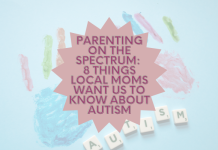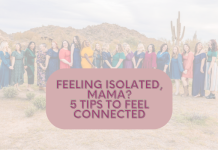 Once upon a time, I was a lawyer. For part of my career, I practiced Education Law and represented District and Charter schools around Arizona. Education Law includes a little bit of everything that touches schools and students, but one of the biggest, most complex, most rewarding, components of Education Law is Special Education.
Once upon a time, I was a lawyer. For part of my career, I practiced Education Law and represented District and Charter schools around Arizona. Education Law includes a little bit of everything that touches schools and students, but one of the biggest, most complex, most rewarding, components of Education Law is Special Education.
I was blessed to count as colleagues several former teachers who transitioned to being Education Law attorneys. I learned so much from them, but perhaps one of the most important things I learned was this: even though we represented schools, we were simultaneously on the side of kids. With that background in mind, I wanted to share some tidbits of wisdom to help parents understand our role and how you can help your child thrive in special education.
1. We Want Your Child to Succeed
Having a lawyer involved in your child’s special education may create a shift to an “us versus them” mentality but listen, we want your child to do well in school and in life. We may disagree on the “how” or the metrics involved in your child’s IEP (a common abbreviation for “Individual Education Plan”), but our goal is always going to be to help support your child.
2. We Often Don’t Need to be Involved
If you ever have a concern about your child’s teacher or another member of school staff, talking to your school principal may help resolve the problem faster and without the need to involve attorneys. Of course, if you feel like you need representation – or at least to consult with an attorney – before making any moves, you have the right to do that. In fact, we encourage you to do that! An attorney can give you vital information and can help guide your decision-making. Just remember that talking things through with someone who can have a direct impact on your concern is often a good first step.
3. Children Develop at Their Own Pace
Not every child will be reading by the end of pre-K, Kindergarten, or even first grade. Not every child will be socially competent and make friends easily in the first year or two of school. Some children will still be eating dirt and coloring on the wall at 6. That’s all normal. Think back to when our generation was in kindergarten – I remember a daily nap was part of the schedule. In kindergarten, my daughter was expected to sit still in her desk from 8:00 a.m. to almost 3:00 p.m. every day. Is one way right and the other wrong? Not necessarily. It’s going to depend on your child’s development and what kind of program suits their learning style and school readiness. These are things you should be assessing with your co-parent, your pediatrician, or other trusted professionals.
4. Your Child’s School Success Will Not Earn You a Parenting Trophy
We live in an age of competitive parenting. Especially in the social media age, it’s so easy to fall into the trap of defining your own success as a parent by the milestones or achievements of your kids. Again, remembering that your child is a unique individual and will learn and grow at their own pace, is important. Consequently, not all kids who achieve milestones earlier rather than later are “gifted,” and not all kids who are slower to achieve those same milestones need special education services. It’s a spectrum, it’s a range, it’s a balance, it’s some measure of educated guess work.
It is also important is to let kids fail because THIS is when it’s safe. You can’t save them from mistakes in college or at their first job by calling the Dean or their boss. Your kids need to learn how to tackle adversity and it can start with not getting an A on their spelling test. Doing homework for your kids may feel like helping, but it could be masking a bigger issue.If your child is struggling, doing something makes it so much harder to assess the problem. Let your child be an authentic student and wherever they need help, we can figure out a plan to obtain that help.
5. Please Be Kind
Kindness is king. We teach our kids to be kind. but sometimes we forget this rule for ourselves. Reflect on what I’ve said so far and consider how that should guide your interaction with your school staff, administration, and lawyers if they’re involved. Teachers are human and may make mistakes. Let’s fix them together. You may think your child absolutely needs XYZ intervention, but let’s work together to see if that’s really the best fit or if there’s an alternative that makes more sense. Avoid “cocktail talk” – what may have worked for your friend’s child may not be applicable, feasible, or appropriate for yours. If we can treat each other with respect and kindness, we will come up with a plan.
Don’t forget to be kind to your child. Kids of all ages and abilities have self-esteem issues. Kids with disabilities are at huge risk of being identified by their disabilities. Let them be who they are. Their disability is a part of them – but it doesn’t define them.
6. There Are Resources for You
There are some great private lawyers out there that can help be an advocate for you and your child. There are also organizations that work in this field and can arm you with information and tools to make you your child’s advocate. For more information, check out Raising Special Kids and the Arizona Center for Disability Law.
You know your child the best. Special education staff and lawyers have seen a lot and know a lot, too. We can help. Let’s work together for the benefit of your kids.
My former colleague and always-friend, Heather Pierson, a former teacher, current Special Education lawyer, and mom to an elementary school-age son, collaborated with me on this piece and I am forever grateful to her for helping me be a better lawyer and a better mom.
*Nothing in this article should be considered legal advice. If you feel you need legal advice, you should contact an attorney in your area.










